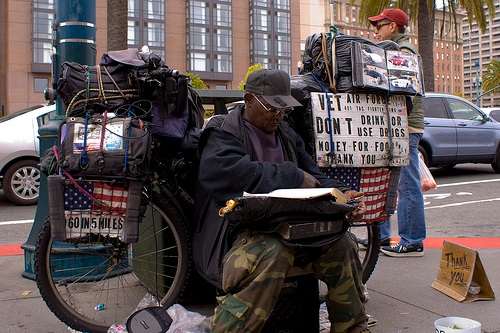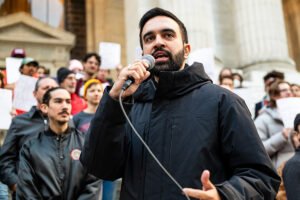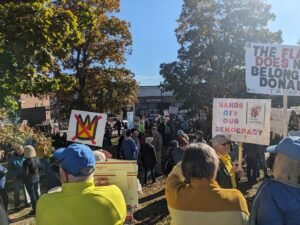
April 22, 2015; CBS SF Bay Area
San Francisco joins its neighbor Los Angeles in dedicating additional resources to help get homeless veterans into stable housing, with the goal of ending veteran homelessness by the end of this year. Like L.A., San Francisco has one of the largest homeless populations in the country, and many of them are vets.
The Bay Area CBS affiliate reports that “U.S. Secretary of Veterans Affairs Robert McDonald, along with San Francisco Mayor Ed Lee and other Bay Area community leaders, announced a one-third national decrease of homeless veterans since the White House and U.S. Department of Veterans Affairs issued a 2010 plan to end veteran homelessness by the end of 2015.”
Sign up for our free newsletters
Subscribe to NPQ's newsletters to have our top stories delivered directly to your inbox.
By signing up, you agree to our privacy policy and terms of use, and to receive messages from NPQ and our partners.
The Department has awarded nearly $93 million in support for veteran families in 15 communities nationwide, including San Francisco. It comes in the form of three-year grants to help about 45,000 homeless and at-risk veterans and their families. That’s in addition to more than $1 billion in fiscal year 2014 as part of the VA’s initiative to strengthen programs to prevent and end homelessness.
Mayor Lee says the city is on track to meet the goal it has set, due to support from public and private partnerships between the U.S. Department of Housing, San Francisco Veterans Medical Center, the San Francisco Housing Authority, the nonprofit Swords to Plowshares, as well as the local estate industry, thriving in the biggest boom in the region’s history. They provide such services as health care, housing, job training and education.
The mayor cited a new housing complex in the city’s Tenderloin district, long a magnet for homelessness. Swords to Plowshares, a community-based, nonprofit veteran service organization that provides wraparound care to more than 3,000 veterans in the San Francisco Bay Area each year, says that attacking the problem on a national level has had a big positive impact.—Larry Kaplan











